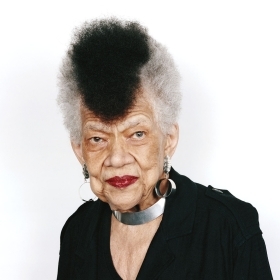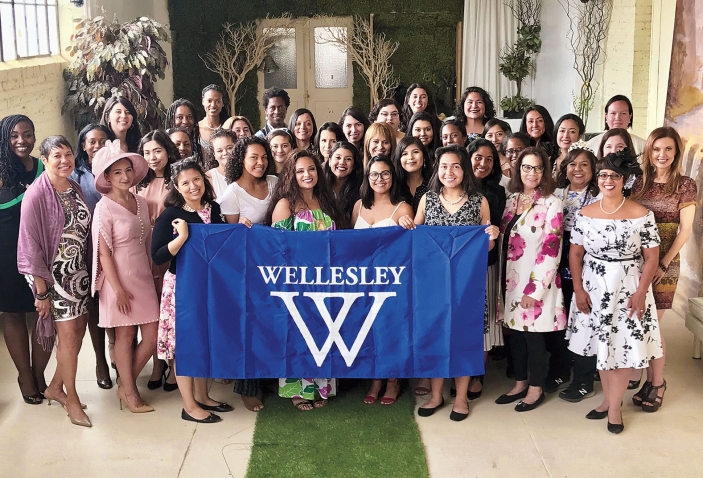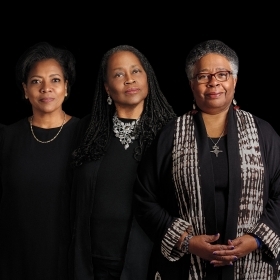Dolores Arredondo ’95 loves to tell the story of the young alum who came running into the annual tea sponsored by Latina and African-American alumnae in Los Angeles. It’s an event modeled on afternoon tea at Wellesley, complete with fancy attire “to celebrate us.”
“We’re sitting there in these very elegant hats and dresses and sipping on tea,” Arredondo says, “and here comes this woman in scrubs and white slippers, and her hair was kind of frazzled.”
“Excuse me, excuse me,” the alum said breathlessly. “Is this the Wellesley tea?” She was a medical resident at UCLA and desperately wanted to join the Wellesley crowd—between shifts. Her surgical mask still around her neck, she apologized profusely for her clothes.
“All we could do was cheer for her and hug her,” Arredondo says. “We know we’re so underrepresented, both WAAD and WLAN women, in medicine, and all we could do was [ask], What do you need from us? … We just poured our tea and our heart into her.” The woman, now a practicing physician, attends the teas faithfully, and always volunteers to coach students interested in medicine.
This past June was the 15th anniversary of the tea, which alumnae called “Quinceañera”—after the traditional celebration for a girl’s 15th birthday. Representatives of the Alumnae Association and the College—the WCAA’s director of alumnae engagement Lesley Rhodes Robertson ’88, advisor for Latinx students Mared Alicea-Westort, and director of Harambee House Tracey Cameron—flew west to attend.
It all started in 1998, before shared identity groups WAAD (Wellesley Alumnae of African Descent) and WLAN (Wellesley Latina Alumnae Network) existed. Arredondo and three friends, feeling far from Wellesley, decided to form what she calls “a band to support each other.” They got together every third Sunday for tea, for hikes, for whatever activities they chose. Several years in, they had the idea to invite other Wellesley alums for an event, and the annual tea was born.
Alumnae of color from a wide range of years, current students, and sometimes even prospective students attend. Intentionally held at centrally located venues—to aid accessibility for those without cars—the event usually draws 40–45 people. Organizers work hard to keep costs down and have even made spare dresses available for anyone who wanted them, all in the name of inclusivity.
The program focuses on networking. Attendees individually introduce themselves to the full group, and may share a favorite Wellesley memory. At multigenerational tables, they might trade advice with the younger generations. Connections are made; internships, grad school advisors, and job opportunities have been found. And the group strategizes about how to get more alumnae of color involved, whether through admissions work to increase the pipeline of students of color, fund-raising, or participation in SIGs or local clubs.
Kathy Silva ’16 has attended the tea since the summer of her junior year. Her first time, she says, “I was able to see myself in the alums that I met, and learning about their careers gave me hope about my own future…. I left feeling empowered and affirmed, and excited to become part of this network myself!” As a result, she became a WLAN board member and is serving as the SIG’s southwest regional representative.
Longtime attendee Karen Grigsby Bates ’73 says what keeps her coming back is simple: “The sisterhood. … I’ve gotten to see the shy incomings grow into lovely, poised young women. And the younger alums grow into powerful community and business leaders. It’s really heartwarming.” This year’s attendance by College representatives was tremendously appreciated by the group, she says. “[It] is a sign of how far the relationship between the WCAA and alums of color has developed. That would have been unthinkable 20 years ago, maybe even 10. It’s a happy sign of progress.”
For her part, Arredondo has big plans for this tea. “My dream for something this special … is to have it in other cities across the U.S., to help engage alums and connect them to students.”
Stay tuned.






We ask that those who engage in Wellesley magazine's online community act with honesty, integrity, and respect. (Remember the honor code, alums?) We reserve the right to remove comments by impersonators or comments that are not civil and relevant to the subject at hand. By posting here, you are permitting Wellesley magazine to edit and republish your comment in all media. Please remember that all posts are public.